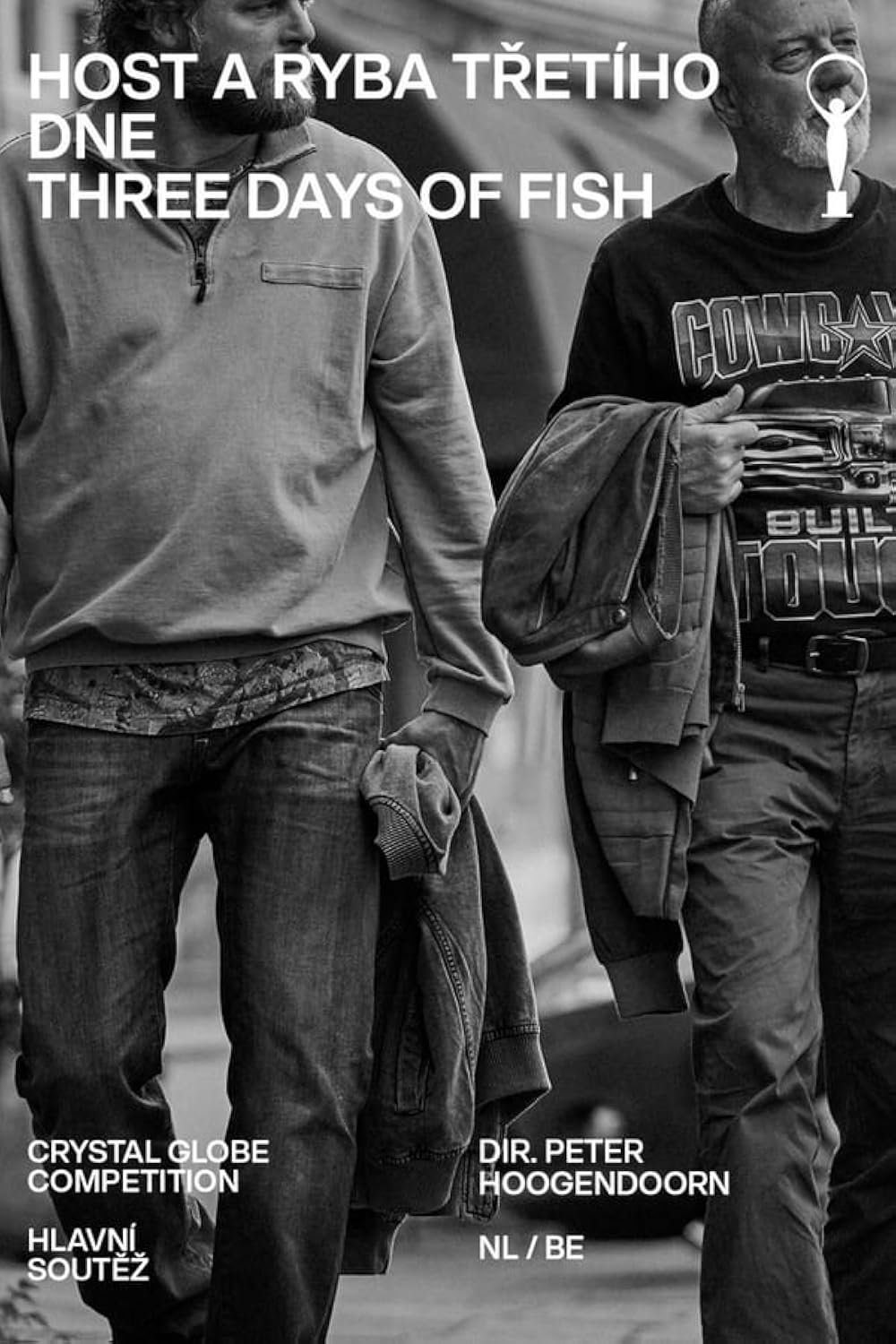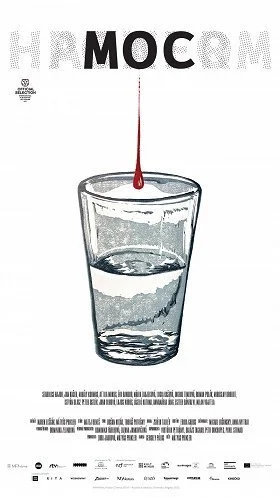54+
Zagreb Film Festival and Network of the Festivals in the Adriatic Region are inviting all the cinephiles older than 54 to apply for film critics and analysis workshop.
Applicants from Croatia, Slovenia, Bosnia and Herzegovina, Serbia and Montenegro will attend Zagreb Film Festival for four days and watch films in Adriatic Audience Award selection. The workshop is structured as a series of screenings, lectures and open discussions, and as a result, written critics will be published on the Network website and other platforms of partner festivals. Mentor of this workshop is film publicist Nino Kovačić.
Apply now!
The call will be opened in September 2025.
Film reviews
54+ participants about films in competition for Adriatic Audience Award
Guests, like fish, start to smell after three days
Boris Abramović
Three Days of Fish is a humorous drama about an attempt to mend fractured family relationships, directed by Dutch filmmaker Peter Hoogendoorn.
A complex relationship between father and son
Oriana Brgić - Kolić
The film Three Days of Fish by Dutch director Peter Hoogendoorn is a darkly comedic family drama and, at the same time, a bittersweet and heartfelt human story that draws us into the subtle nuances of communication between a father and son.
Twofold farewell
Silva Čičak Mavriček
Milk, a drama film, is the feature-length debut of Dutch director and screenwriter Stefanie Kolk, which premiered at the 2023 Venice Film Festival.
Can authenticity survive the construct of life?
Vesna Valić
Norwegian film The Hypnosis is Ernst de Geer's directorial debut. It is presented as a darkly humorous drama or satirical comedy. However, I am more inclined to interpret it as a serious warning about the consequences of reducing life to a construct of sensationalism and desirability.
Closeness, and how to remember it
Jasna Žarković
Four films from this year's Network of Festivals in the Adriatic Region programme (Three Days of Fish, Milk, The Hypnosis, and Flow) are united by the theme of closeness. Do we know how to desire it, recognize it, create it, fight for it, and preserve it? The answers vary. What matters is the need to reflect on our relationships with others, the role of emotions in them, and love as one of the most reliable foundational supports. Within ourselves.
Haris Dedić
"Sweet Dreams", the second feature film by director Ena Sendijarević, unfolds a compelling narrative about the end of the colonial era in the Dutch East Indies (present-day Indonesia) presented through the lens of a dysfunctional family's disintegration. The story takes place around 1900, as the colonial status in the Netherlands begins to take shape. Following the golden age of colonialism, critical reflections on colonial practices emerge. The film portrays a group of people aware that the golden age is ending, and who are reluctant to relinquish their privileges.
Goran Miličević
"Black Stone," a mockumentary by Greek director Spiros Jacovides, is a heartwarming comedy and family drama. However, more importantly, it's a critique of ableism and racism, highlighting the natural right to be different. If someone is disabled, why shouldn't they be cantankerous among the healthy? If someone has black skin, why shouldn't they be at ease among whites?
Višnja Bunata Blagović
Is morality at odds with politics, or should they operate in tandem in the process of political decision-making? The Slovak film "Power," directed by Matyas Prikler, positions us right at the heart of this dilemma.
Tatjana Rosić
Ena Sendijarević's "Sweet Dreams" is a costumed historical drama portraying the downfall of the Dutch colonial regime in Indonesia around the year 1900. The film ostensibly focuses on social change (the end of colonialism) and its consequences. It suggests that these consequences are never straightforward, mirroring both the history of the 20th century and the supposedly postcolonial 21st century. The complexity and elusive nature of social change lead the author of "Sweet Dreams" to resort to not realistic or documentary but hallucinatory, fantastic, and dreamlike frames and visual solutions that present the drama of social change more as hallucination than as a historically real action.
Jelena Ratkov Kvočka
Spiros Jacovides' first feature film is about breaking prejudices and liberating individuals, families, and modern society from frustrations. The film is stylistically crafted as a documentary simulation exploring the "vanished spirits of the public sector." Following the investigation of this social phenomenon, specifically the disappearance of the civil servant Panos Dologlou, the cameraman and sound technician end up at Haroula's door.
Oriana Brgić Kolić
The core of the family, along with its suffering and breakdown, remains unchanged from the time of Greek tragedies to today, regardless of historical, cultural, or social contexts.
Aleš Naglas
"Copenhagen Does Not Exist" stirred and heightened my concern for the world we live in. The film is an unsuccessful attempt to break out of the system of familiar life patterns: traditional and experimental lifestyles that vary significantly from the average. From genuine communities where everyone is active to eco-villages, various communes... The range of acceptable ways of living is, in reality, very narrow.









